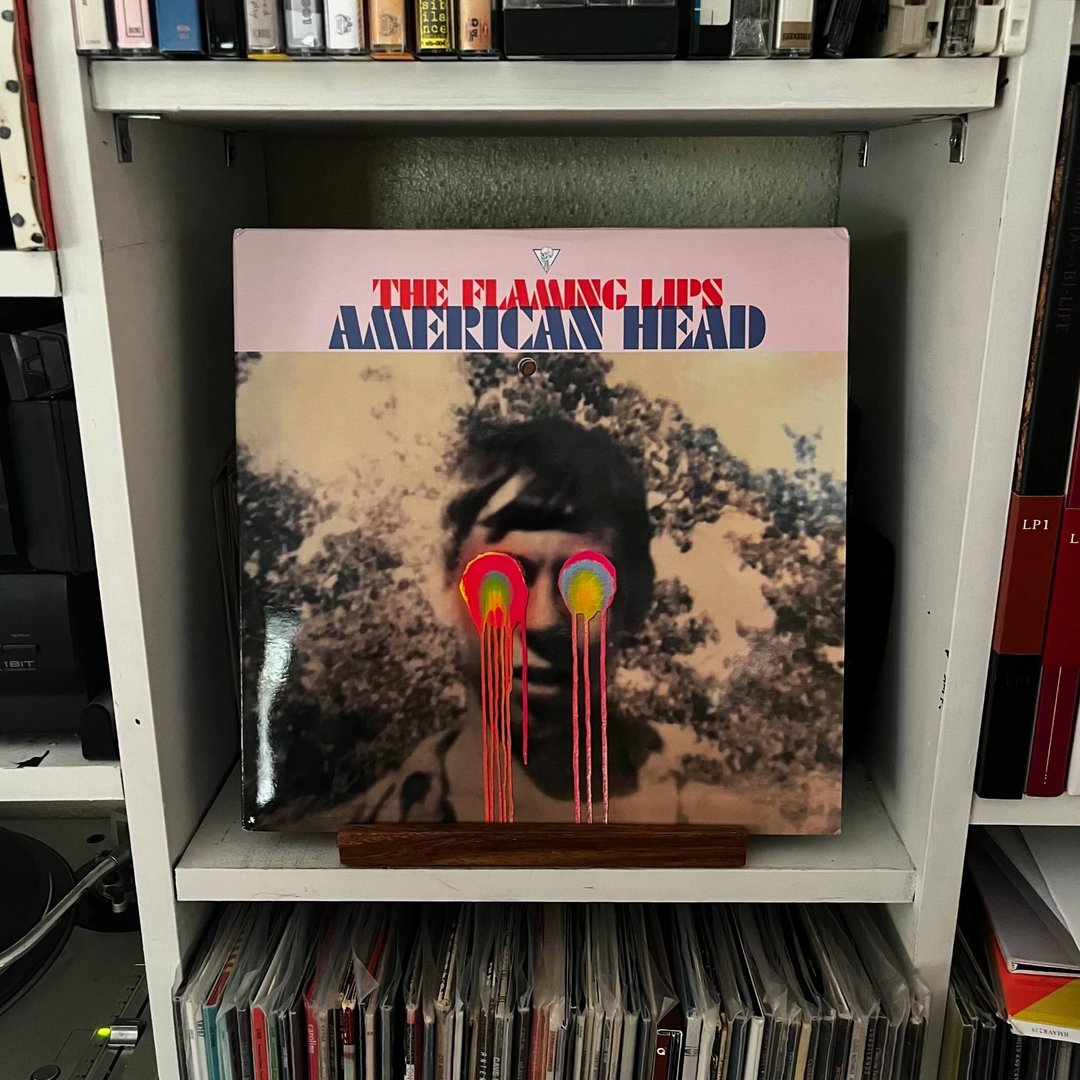
Few bands have had the run that The Flaming Lips had between The Soft Bulletin and The Terror. They managed to several albums of remarkably consistent quality while also sounding nothing alike, traversing from baroque symphonic rock to technicolor glam pop to dystopian psych freakout. While you could easily credit their entire body of work as one of the most singular and inventive careers in music, that period is one of my favorite runs of album in any discography.
I’ve lost track since. I said to some friends recently that I missed when The Flaming Lips were good. It’s maybe more accurate to say that I’ve been unable to keep up with the deluge of projects well enough to sort the inconsequential experiments from the proper albums. But out of this haze, American Head emerges with a seismic scope that combines the best parts of their disparate threads into one immense and gorgeous whole.
It’s tough to unify a catalog as diverse as the Lips’. They’ve been drugged out punks and a novelty act and space priests and psych rock revivalists. But somehow, American Head finds a way to do it.
The production and arrangements takes cues from The Soft Bulletin and Yoshimi Battles the Pink Robots the same way that Beck’s Morning Phase was a return to Sea Change’s MO. The sonic palette is lush and expansive, augmenting typical rock instrumentation with strings, electronics, samples, and various studio tricks. For all of its symphonic psych-rock leanings though, there are some flashes of the existential dread of Embryonic and The Terror, particularly on tracks like “Brother Eye,” “God and the Policeman” (which features vocals from Kelsey Musgraves), and “When We Die When We’re High” (more on that track later).
Over this, the lilting tenor of Wayne Coyne croons lyrics about drugs, youth, religion, drugs, love, and more drugs. The subject matter is nothing new for the Lips, but this is the closest they’ve felt to their earlier work—and personal mythology—in decades. The stories behind tracks like “At the Movies on Quaaludes” and “You and Me Sellin’ Weed” feel like they could have been taken right from Wayne Coyne’s adolescence.
The centerpiece of the record is the pair of tracks “Mother Please Don’t Be Sad” and “When We Die When We’re High.” The first track is a psychedelic opus in the tradition of Magical Mystery Tour and Dark Side of the Moon, while the second is an urgent instrumental driven by a drum groove, bass synth, and a marimba set through a long delay effect.
In a discography like the Flaming Lips’, its often difficult to figure out what releases deserve a closer listen and what are mere detours between more articulate ideas. And while many Lips fans disagree on what records those might be, American Head is sure to be remembered as one of their most essential works.